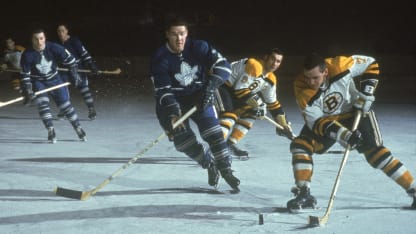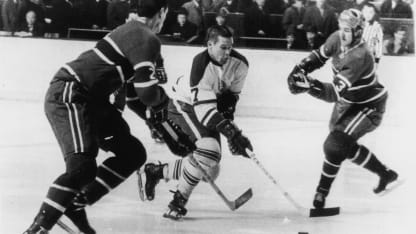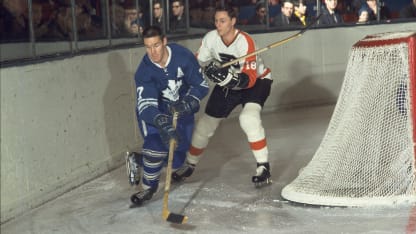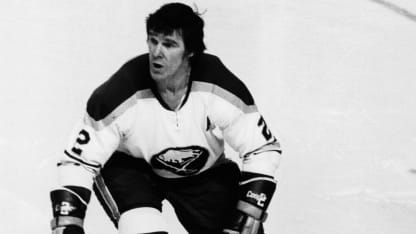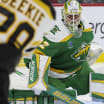Hall of Fame defenseman Marcel Pronovost, who played against and with Horton, called him "the anchor of Toronto's defense." That's high praise considering the defensemen on Punch Imlach's Maple Leafs dynasty of the 1960s. There was Horton's longtime partner, Hall of Fame member and three-time All-Star Allan Stanley; Baun, a hard hitter who played 17 seasons in the NHL; and four-time postseason All-Star Carl Brewer.
Pronovost joined them in 1965 for a few seasons at the end of his career and observed that Horton was "a leader - not loud; by his actions."
"I would say that Horton, a little more than any other player, was the key to the success that we had," said Imlach, as quoted by Frank Orr in the book "Remembering Tim Horton."
TIM HORTON CAREER TOTALS | View Full Stats
Games: 1,446 | Goals: 115 | Assists: 403 | Points: 518
"He was always there, always the same, always giving the effort, the best he had every night."
Amazingly, Horton did it all with eyesight so poor that he was forced to wear thick glasses away from the rink, and many of his teammates gave him the nickname "Clark Kent," Superman's alter ego.
With a square jaw, wide shoulders and big legs beneath his brush-cut hairstyle, Horton wasn't particularly big -- he was listed as 5-foot-10, 180 pounds. But he was all muscle, especially his upper body, which he exercised regularly. Also, as his teammates would attest, he was fearless on and off the ice.
He was born Miles Gilbert Horton on Jan. 12, 1930, though his mother referred to him as "Tim" even before giving birth. Horton came from the mining region of Northern Ontario, became a standout junior for St. Michael's Majors and was named the top defenseman in the Ontario Hockey Association in 1949.
Detroit Red Wings center Alex Delvecchio played against Horton in junior hockey and recalled on the "Legends of Hockey" television series that, "When he hit you, you knew you were hit, so any time he was out there you knew you had to try to keep your head up, make sure you had your head up and find out where the brush cut is."
Not only could Horton stop opponents, he could also lead the rush, something unusual for a defenseman at that time. Later that year, when Maple Leafs owner and general manager Conn Smythe signed him to his first pro contract before he exhausted his junior eligibility, he called Horton "the No. 1 defense prospect in Canada."
